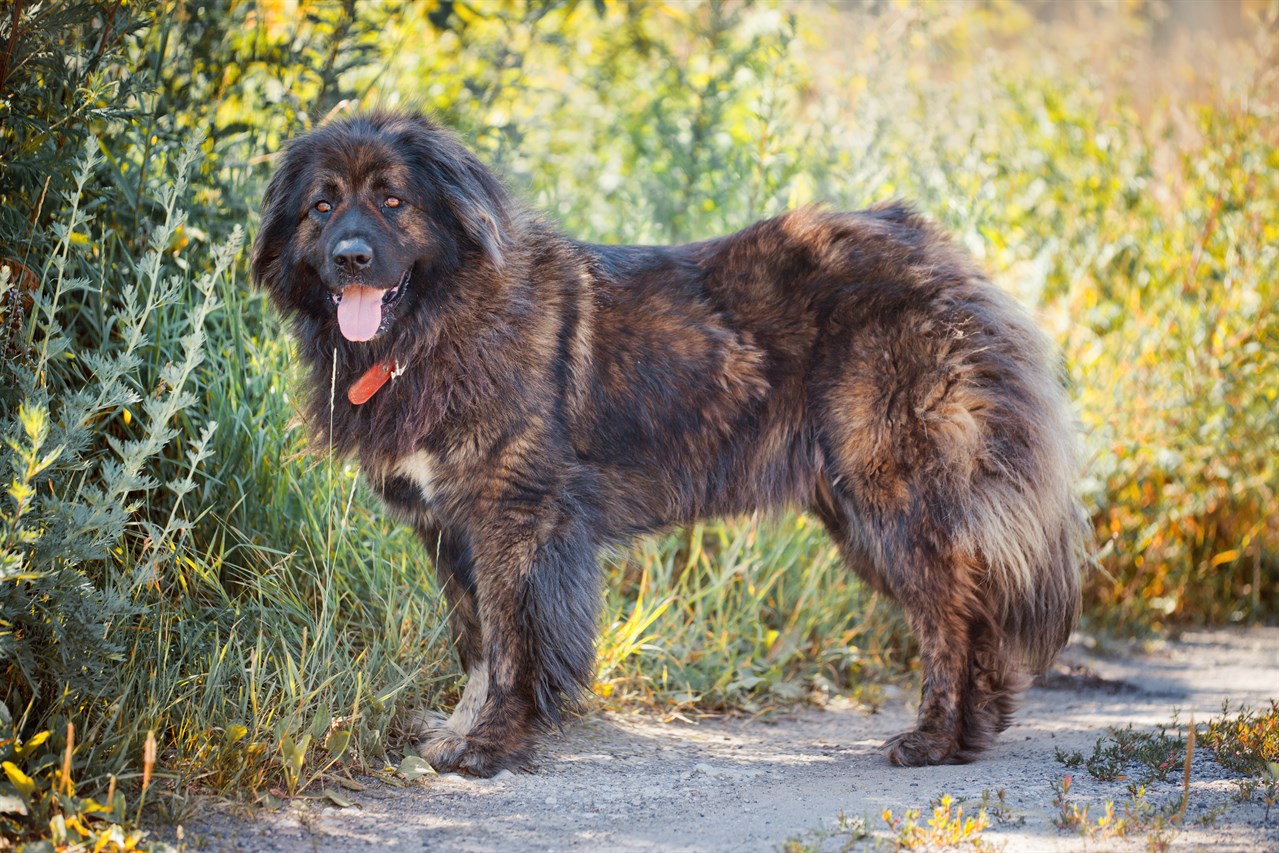Guarding Wellness: Common Health Issues of the Caucasian Shepherd Dog

The robust Caucasian Shepherd Dog, known for its strength and resilience, is generally a healthy breed. However, like all dogs, they may be prone to certain health issues. Understanding these potential concerns allows owners to be proactive in maintaining the well-being of these majestic canines.
Hip Dysplasia
Hip dysplasia is a common orthopaedic issue in many large and giant breeds, including Caucasian Shepherds. It occurs when the hip joint doesn't fit into the hip socket properly, potentially leading to arthritis and lameness. Regular veterinary check-ups and maintaining a healthy weight can help manage this condition.
Elbow Dysplasia
Similar to hip dysplasia, elbow dysplasia is a developmental condition that affects the elbow joint. It can result in pain, lameness, and arthritis. Responsible breeding practises, a balanced diet, and appropriate exercise levels contribute to joint health.
Obesity
Caucasian Shepherds, being a large breed, are susceptible to obesity, which can exacerbate joint issues and contribute to other health problems. A controlled diet, regular exercise, and portion control are crucial in preventing and managing obesity.
Osteochondrosis Dissecans (OCD)
OCD is a condition where fragments of cartilage and bone become detached in the joint, leading to pain and lameness. It is more common in fast-growing large breeds like the Caucasian Shepherd. Controlled growth through proper nutrition and avoiding excessive high-impact activities during puppyhood can help reduce the risk.
Heart Issues
Certain heart conditions, such as dilated cardiomyopathy (DCM), may affect large breeds like the Caucasian Shepherd. Regular veterinary check-ups, a balanced diet, and maintaining an active lifestyle contribute to cardiovascular health.
Hypothyroidism
Hypothyroidism, a condition where the thyroid gland doesn't produce enough thyroid hormone, can occur in Caucasian Shepherds. Symptoms may include weight gain, lethargy, and skin issues. Regular veterinary monitoring and appropriate medication can manage this condition.
Allergies
Caucasian Shepherds may be prone to allergies, including food allergies or environmental sensitivities. Signs may include itching, skin irritation, and digestive upset. Identifying and avoiding allergens, as well as consulting with a veterinarian, can help manage allergies.
Entropion
Entropion is a condition where the eyelid rolls inward, causing irritation to the eye. This can be a concern in some large breeds, and corrective surgery may be necessary to alleviate discomfort.
Bloat (Gastric Torsion)
Bloat is a life-threatening condition where the stomach twists, trapping gas and preventing the dog from belching or vomiting. This is an emergency situation that requires immediate veterinary attention. Feeding smaller, more frequent meals and avoiding exercise after meals can help reduce the risk.
Ear Infections
Caucasian Shepherds with their folded ears may be prone to ear infections. Regular cleaning and monitoring for signs of infection, such as redness, swelling, or discharge, can help prevent ear issues.
Cataracts
Cataracts, a clouding of the eye lens, can occur in older Caucasian Shepherds. Regular eye check-ups can help detect cataracts early, and surgical intervention may be considered if necessary.
In conclusion, while the Caucasian Shepherd Dog is generally a healthy breed, proactive care, regular veterinary check-ups, and a focus on preventive measures contribute to their overall well-being. Responsible breeding practises that prioritise health can also mitigate the risk of certain hereditary conditions. Owners committed to the health and happiness of their Caucasian Shepherds can enjoy many years of companionship with these magnificent dogs.
Caucasian Shepherd Dog puppies for sale
- Find Caucasian Shepherd Dog puppies for sale in ACT
- Find Caucasian Shepherd Dog puppies for sale in NSW
- Find Caucasian Shepherd Dog puppies for sale in NT
- Find Caucasian Shepherd Dog puppies for sale in QLD
- Find Caucasian Shepherd Dog puppies for sale in SA
- Find Caucasian Shepherd Dog puppies for sale in TAS
- Find Caucasian Shepherd Dog puppies for sale in VIC
- Find Caucasian Shepherd Dog puppies for sale in WA